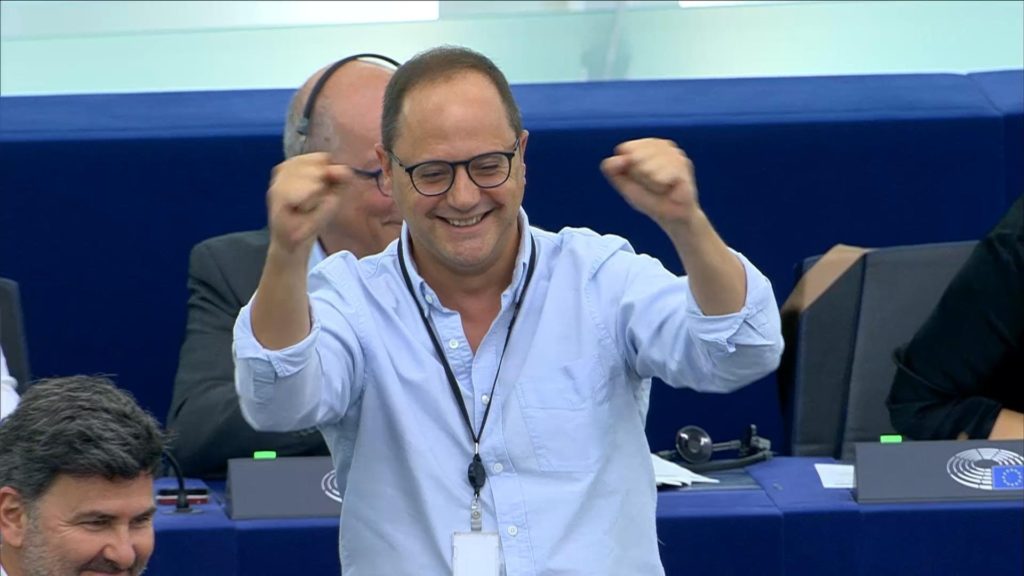
The Nature Restoration Law (NRL) has survived the European Parliament’s Plenary vote today, Though the Parliament adopted a significantly weaker NRL, the Council’s position is more environmental ambitious – and the Council tends to have the upper hand in these negotiations. This augers well for the NRL coming into force. Oliver Moore (Updated 23.30 CET and 15.40 CET on 13/07/23 with Parliament’s adopted text added)
What happened?
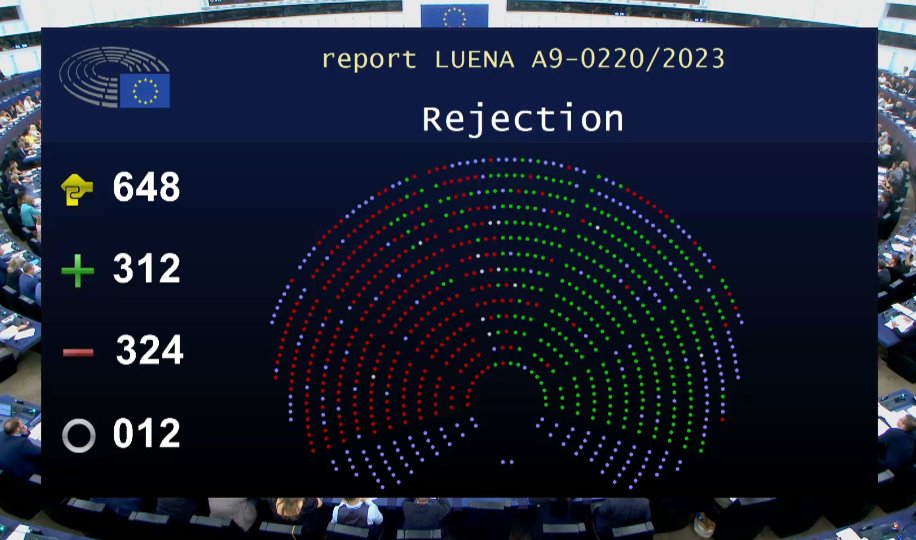
The Nature Restoration Law (NRL) has survived the European Parliament’s Plenary vote today, where a rejection of the entire file was the first of 134 amendments to be voted on. However by 324 to 310, the rejection amendment was itself rejected.
Following the final vote of the session, Environment Committee (ENVI) will represent the Parliament in negotiations with the Council of Ministers. This means the Nature Restoration Law will continue its path towards implementation.
The opening and closing votes were key, as these have allowed the legislative train to keep moving. For this to happen, a small number of rebel EPP MEPs switched sides, while a majority of Renew voted to keep the NRL. The gap – 12 votes – means that there was just a tiny number of swing votes to decide whether the NRL would survive or fall.
NEW! access the established positions on Nature Restoration law of the Commission, Council and Parliament here
NRL text adopted by European Parliament 12th July 2023
NRL Council “general approach” as adopted 20th June 2023
NRL original proposal by the European Commission 22nd June 2022
NRL overall procedure file page on Parliament’s website
What’s next?
As the final vote today elected to send the file back to ENVI to begin the next stage of negotiations – trilogues – this means that the Council and Parliament will come to a final, negotiated position. Though called trilogues, in effect the Commission has little to do with this stage of co-legislation – unless it decides to withdraw the entire thing, which is highly unlikely.
Typically, the Council’s position has been the more dominant in these post-plenary negotiations, though this is no typical file. However it is also the case that it is the ENVI committee rapporteur negotiating on behalf of the Parliament is César Luena (pictured above) with shadows such as Mick Wallace (below) also playing a role.
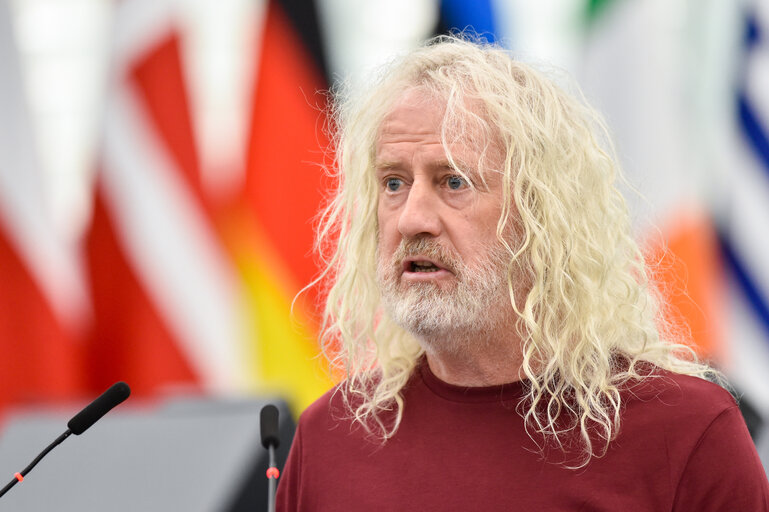
So even with some very serious weakening of the NRL – as can be seen in many of the amendments below – these will not be the final positions brought into law. This is because a compromise between today’s version of the NRL as amended, and the Council’s general position, is what we will end up with. Here is the Council’s general position and a summary article of it is below.
The Council’s position is more environmentally ambitious than an initial reading of the Parliament’s position as adopted today suggests. So overall, while today may seem like a day of mixed messages, in the long course of the progression of legislation, it marks a step towards having a Nature Restoration Law, and one that will in the end be more ambitious than the Parliament’s weak position.
Big Step Forward for Nature Restoration Law – Council of Ministers Agrees its Position
In more detail
A number of amendments which passed today certainly weaken the environmental ambition of the Parliament’s position in the negotiations. Some of the standout ones include the complete deletion of article 9 on restoration of agricultural systems (including the contentious rewetting targets as well as biodiversity indicators as per annex IV); dropping article 16 on Access to Justice (amend 44); amendment 136 would delay implementation of the NRL until the Commission provides more data (amends 135 and 136, pertaining to Article 23) – this too was adopted. An amendment to postpone targets due to socioeconomic reasons was also adopted (amend 131).
Find all amendments here
On funding there were two main amendments, one rejected one adopted. what was arguably the stronger amendment – 84 – was rejected. This is another peculiarity of this voting session today. Compare these two amendments: Amendment 84 stated that “when implementing this Regulation, Member States shall make use of financial resources from appropriate sources, including Union funds, to finance restoration actions.”
It went on to add that within 24 months of implementation the Commission “shall assess any gap between restoration funding needs and the available Union funding necessary” including “in particular through the establishment of a permanent dedicated nature restoration fund” within the ceiling of the multiannual financial framework (MFF). It further added that the European Investment Bank shall work with public and private funds to enable this, adding that the Commission shall also ensure effective mainstreaming of biodiversity measures “across all relevant Union programmes”. (bold emphasis added)
However amendment 11 was adopted, which states that within 12 months of the entry into force of the Regulation, the Commission shall outline in a report funding the availability, funding needs and gaps for implementation, including for compensation measures for landowners and extra measures. While the reference to compensation is welcome, the reference to actually creating the funding is weaker – “where appropriate, proposals for adequate additional measures, including financial measures to address the gaps identified, such as the establishment of a dedicated instrument and without prejudging the prerogatives of co-legislators for the adoption of the multiannual financial framework post 2027.”
Both would have helped assuage fears over finance – but amendment 84 is more committed.
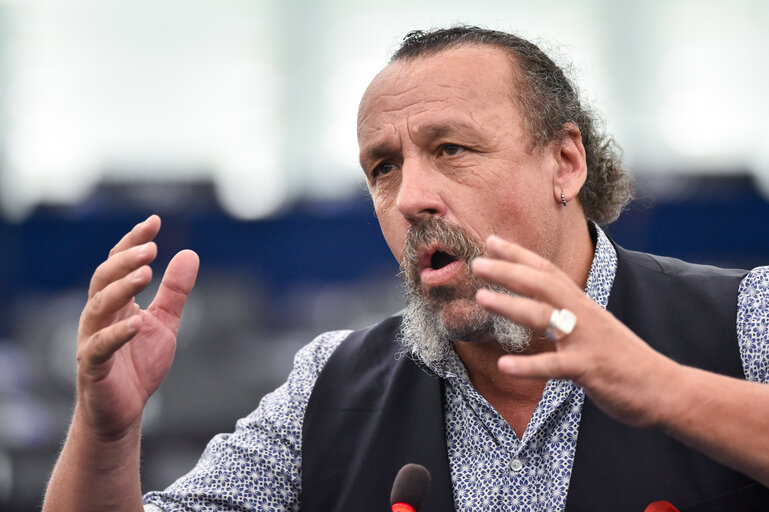
Conclusion
It is unusual for the Parliament to approach trilogue with a position environmentally weaker than the Council’s. But again, this is no ordinary file.
Today was another bruising day in the legislative journey of the Nature Restoration Law. It was very much a day of progress and loss, but also, crucially, complete derailment was avoided. Moreover, the Council position is stronger – and the Council is too in reality. This means that, for example, a compromise will have to be found between complete deletion of Article 9 and the Council’s position on Article 9. This is unlikely to be complete deletion, especially as the weaker institution holds the position of deletion. Similarly for financing, subject to such understandable focus in recent weeks.
Time will tell as the process unfolds. But importantly, there still is a process.
More
Commission Releases Slew of Agri-Food Documents before Summer – here’s what you need to know.
ENVI Committee Votes Down Nature Restoration Law Report – what happened and what’s next?
Big Step Forward for Nature Restoration Law – Council of Ministers Agrees its Position
Nature Restoration Law avoids rejection in Parliament’s Environment Committee – what’s next?
Nature Restoration Law | No, 10% of land will NOT be abandoned under NRL
Rewetting Survives, Natura 2000 areas ringfenced in Environment Committee Text
Nature Restoration Law News – Environment Committee Edging Towards Deal as EPP walks out
How will Environment Committee vote on Nature Restoration Law?
Agri MEPs Vote to Reject the Nature Restoration Law – what’s next?
Nature Restoration Law | Agri Committee’s Amendments Revealed – Reduced Targets, Increase Exemptions





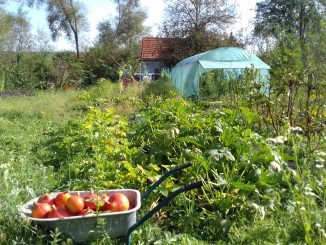


2 Trackbacks / Pingbacks
Comments are closed.